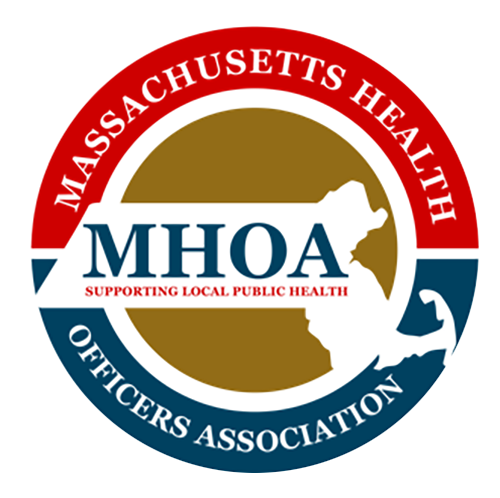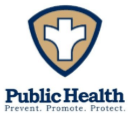Complete Story
08/05/2021
MHOA Member Spotlight – Timothy Muir McDonald
By Abby Faria
By Abby Faria
Timothy Muir McDonald currently serves as the Director of Health and Human Services (HHS) and the Assistant Emergency Management Director for Needham, MA. This role encompasses many responsibilities including a Public Health Division, a youth mental health counseling service, a Senior Center and Aging Services Division, and a Veterans Agent. Thankfully, to manage the scope of the department, Mr. McDonald has “a lot of smart and dedicated people who help.”
Prior to the COVID-19 pandemic, Mr. McDonald explained that his department was focused on long-term goals, such as improving transportation and food access. However, with the start of the pandemic earlier last year “things changed quite a bit.” The town initiated its Incident Command System (ICS) starting in February of 2020, before the pandemic was even declared a state of emergency. Mr. McDonald said that Needham’s goal was to have a “holistic response” to the pandemic, attempting to account for diverse health determinants of all affected groups as best as possible. For example, the Health & Human Services Department considered how mental health was affected by the pandemic at both a personal and a population-level, especially with regards to children and older adults.
In order to provide a holistic response for the community, certain programs were stretched thin. HHS’s Traveling Meals Program (a Meals on Wheels equivalent) had to expand greatly because the Senior Centers and their lunch rooms were closed. For people who were considered high-risk with regard to COVID-19, HHS “did grocery shopping for them and delivered about 45-50 grocery bags each week along with lunches and fresh produce, many from the Needham housing authority, but not exclusively.”
As the pandemic caused less disruption, Mr. McDonald said that the HHS Department was working to gradually transition back to normal services. HHS relied on dozens of volunteers to help with COVID-19 vaccinations, and is now trying to reposition the volunteers to help out with day-to-day challenges of the department.
Mr. McDonald said that he wound up working in public health “in a little bit of a roundabout way.” He studied government and American healthcare policy in college. During his first job after graduating, he worked with Boston’s teaching hospitals to enhance their preparedness for emergencies. This was only a few years after 9/11, and it led him to work on a lot of other emergency preparedness projects within the Boston homeland security region and, eventually, the state health department. Later, he got his Master’s degree in Public Administration.
Mr. McDonald’s favorite thing about working in local public health is “seeing the very tangible effects of what is hopefully my hard work.” He explained that before working in local health, he was responsible for distributing significant grant funds to organizations statewide, but never got to actually meet a single person who he helped while in that role. “I was a couple layers removed from the people who were benefiting from my efforts.” He finds that in his current role, getting to work so closely with those on the receiving end of his work in his community “is affirming.”
He said that in his current role as HHS Director “the scope is broad and that keeps you engaged. You go from recycling and transfer stations to dealing with people who want to have chickens in their yard, to making sure people have access to clean water, air, and that noise pollution is limited.”
In terms of his favorite aspects of his job, Mr. McDonald likes “to see the power of prevention.” He emphasized how he truly believes that upstream investments can serve to address the social determinants of health — ensuring people have access to education, housing, nutritious and fresh food, modes of transportation, and more.
Elaborating on how the pandemic affected public health, he stated, “I think one thing is that the local public health workforce will be more nimble…The pandemic has shown us that in-person work is valuable, but not necessary five days a week…there’s value in productivity for people to work remotely from time to time, in terms of flexibility and supporting families.” Mr. McDonald also explained that he thinks COVID-19 will also underscore the value of having infrastructure in place. “We needed the human capital to be able to pivot and offer many different services in different ways than we used to,” he explained, adding that for their senior remote programs, they bought tablets and distributed them to seniors along with classes to train the seniors how to use the tablets. “Without staff in place, there’s not that ability to pivot” and the technology could not have been distributed.
Mr. McDonald also had plenty to say about membership in MHOA. “I think MHOA in part is valuable because it’s a space to convene with other professionals that are facing many of the same challenges. There’s real value and learning that takes place seeing how Natick and Norwood are approaching challenges that I’m also facing in Needham.” He explained how it’s affirming to see how directors in other towns are dealing with many of the same issues and helps give the sense of “we’re all in this together. MHOA has a very important role…there’s value added from directors generally, as well as health agents, and many of the staff in communications and around the Commonwealth.”


